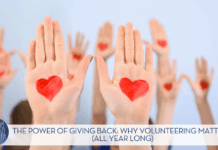Picking your battles with the kids. It can be so hard.
I like routine. I like stability. I like to have control over my life, but all of these things don’t exactly fit in as I’d like when it comes to this wonderful world of motherhood. There are many, many times when I have chosen the wrong battles to fight – whether it be with my kids, my family, or even myself. Even if it’s not your typical response in the parenting department, sometimes things just aren’t worth the fight! Big or small, they have an impact on how we feel and how our days go by, so it’s important to learn to just let it go!

Lessons Learned
With my kids, I have learned that it’s best to take a minute to think about what is really going on. When one of my kids is having a meltdown, are they acting out for a reason? Or are they just being a spoiled, ungrateful, nugget of a child? Are they overtired? Hungry? Sick? Have to poop? These are all VERY legitimate reasons for why my kids have meltdowns, especially the pooping one.
You have to know your child too! Each kid responds differently in different situations, so do what works best for that child. Diversion is extremely helpful with the little ones in our house. They are pretty good when we are able to divert their attention away from whatever is upsetting them. Looking at all the angles helps make the decision to fight the battle or let it go, much easier.
What are Natural Consequences?
There is a big age gap between my stepson and my son – 7.5 years to be exact. So, lately, the battles that we are faced with are different for the 12-year-old than they are for the four and two-year-old. EVERY.KID.IS.DIFFERENT. I’m not sure that you’re aware of this…but it’s true 😉 So, recently, the concept of “natural consequences” was mentioned to me multiple times and in many different conversations.
This is the idea that we have been using with my stepson. If he chooses to not eat a good lunch, then he’s hungry. If he chooses not to turn in his homework, then he gets bad grades. If he chooses to sit in front of the T.V. for hours on end, then he’s missing out on time with his friends or practicing sports (and he will more than likely hear from me about how terrible it is to sit on your butt all day too.)
Allowing the natural consequences to happen has been pretty helpful, so far. The only thing is that it takes time and patience because the consequence doesn’t always happen right away. Which means, as parents, we need to explain and remind him why these things are happening and allow him to take responsibility for his actions. The battle normally chooses itself in these situations….#MOMWIN
Choosing the Battles
These battles happen every single day and multiple times a day, at least in my house. I feel like I am finally realizing which fights are important to address and which ones are not worth the time. We only have so much time with our kids each day and I want to make the most of my time spent with them. I want them to be happy kids and to have fun but also want to teach them to be respectful, grateful, and to love one another. To be honest, the battle normally affects us more than it does the child because we stress and stress over the minor details. I’m trying to transition my focus to the more major happenings of my family’s life and I hope that you will too!
How do you know which battle to choose?














I really love the idea of natural consequences! If we constantly protect our kids from the consequences of their own decisions, like bad grades or missed time with friends, when will they learn? It will be much harder on them if they’re learning it at 18 or 22.